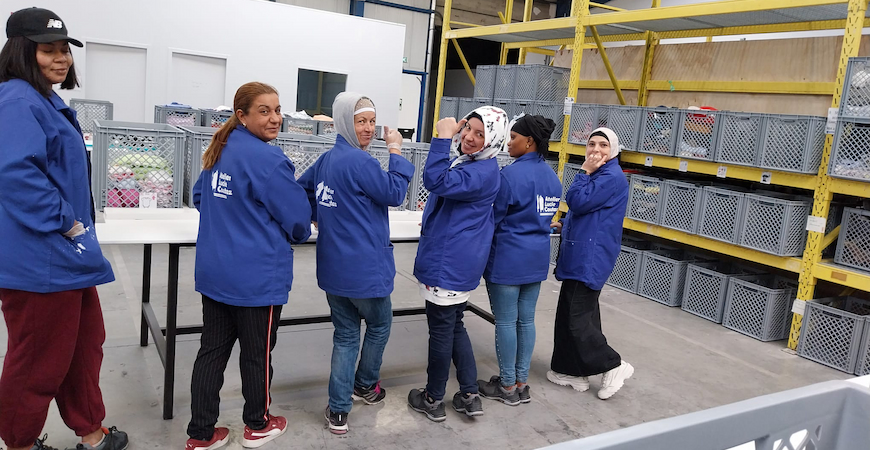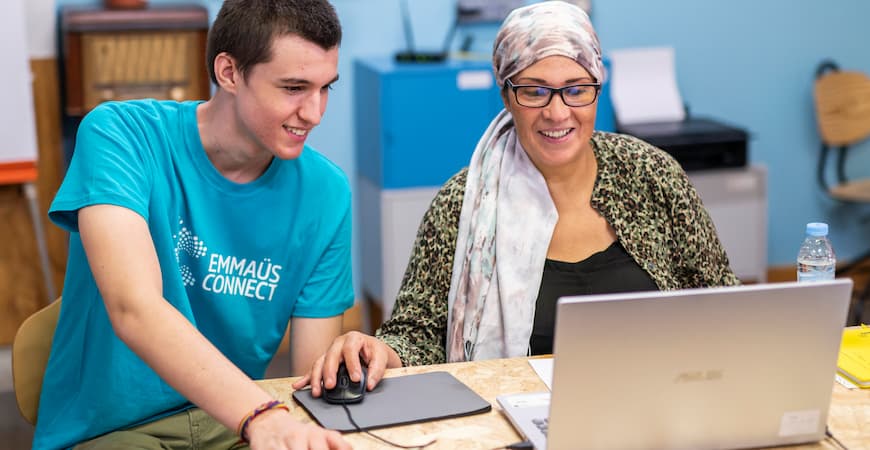Emmaus at the European Parliament
On 31st January, Emmaus Europe organised a commemoration of the 70th anniversary of Abbé Pierre’s radio appeal. To mark the occasion, we took a piece of Emmaus straight to the heart of the European Parliament in Brussels, by recreating an Emmaus salon and setting up an exhibition on Abbé Pierre and an IndignAction video recording zone.
The event was a real success! Throughout the day, we met and talked to some twenty MEPs, as well as numerous parliamentary advisors from all political backgrounds. We discussed all the issues close to Emmaus’ heart, including the fight against poverty, the social and solidarity economy, unconditional and dignified welcome and the rights of migrants and refugees. It was also an opportunity to put forward our overall demands for the European elections in June to the various members of political parties and candidates.
At 2pm, a moving ceremony was held to pay tribute to Abbé Pierre and Emmaus’ struggles. The MEP David Cormand lent his support to the event and spoke alongside our Chair, Carina Aaltonen, Vice-Chair Herbert Bitter and regional board member Thierry Klatovsky. We also had the privilege of listening to a speech by the Vice-President of the European Parliament, Heidi Hautala. Many thanks to them for spreading Emmaus’ message to the whole assembly.
And there’s more!
Last week, the MEP David Cormand organised a debate during the plenary session of the European Parliament in Strasbourg called “Commemoration of the 70th anniversary of Abbé Pierre’s appeal to combat homelessness, against a backdrop of persistent poverty and social exclusion”. This debate was approved by the vast majority of parliament, with the exception of the far-right political groups who opposed it. It took place on Wednesday 7th February 2024 and gave all the political groups the opportunity to express their views on the subject.
The European Commissioner for Equality, Helena Dalli, opened the debate by affirming the European Union’s commitment to combatting homelessness, even though this is not one of the EU’s direct competences. Many MEPs also pointed out that the right to decent housing is anchored in the European pillar of social Europe, as stated in the Lisbon Declaration of 2021.
Several speeches underscored the importance of implementing a “housing first” policy, advocated by Emmaus throughout Europe and inspired by the Finnish model. Some also paid tribute to the volunteers and organisations that work on a daily basis to make up for the ineffectiveness of public authorities.
If you are an Emmaus member, you can find our proposals on our dedicated ‘European Parliament Elections’ page in the member’s area and can be distributed to candidates in your country.
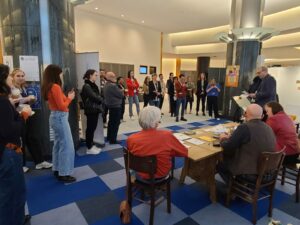
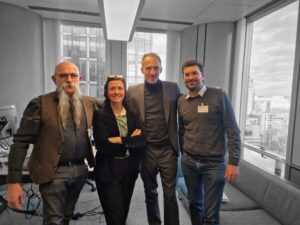
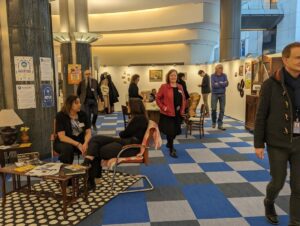
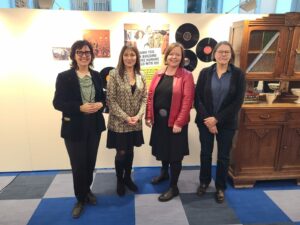
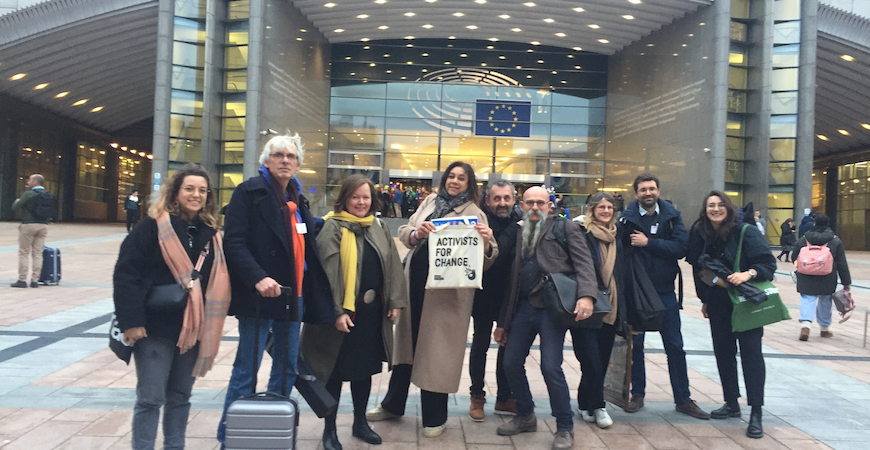
Emmaus representatives at the European Parliament in Brussels. © Emmaus Europe



